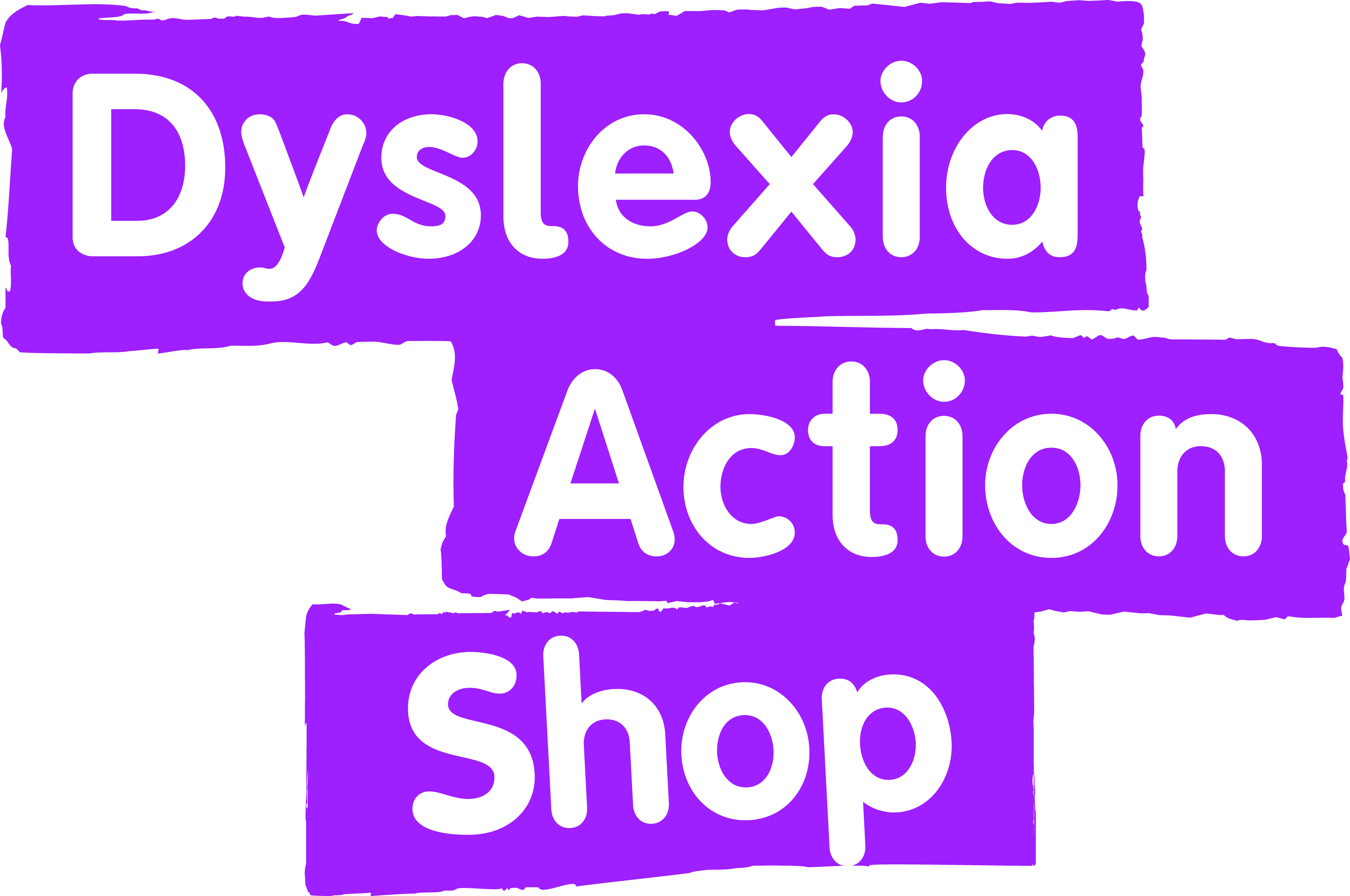|
|
|

Dear Guild Member,
The summer has been a time for reflection for the Dyslexia Guild and how we can improve benefits to Guild members. In light of this, it has been decided to relaunch the Dyslexia Review: The Journal of the Dyslexia Guild this Autumn with a new look, updating our branding and logos. It will still contain topical articles, cutting edge research and updates regarding the world of dyslexia and SpLD but with a new appearance, reflecting our exciting future. The relaunch will be in the Autumn of this year and this means that the Spring/Summer 2017 issue will not be published but instead we recommend you take a look at The SEND Practitioner: http://realtraining.co.uk/category/the-send-practitioner The SEND Practitioner April/May 2017 issue has some topical articles on Autism from well-respected academics such as Professor Simon Baron-Cohen, Dr Sarah Hendrickx and Dr Wenn Lawson.
________
A New Guild Identity - time for you to have your say
To continue our investment in the Guild, and to improve awareness of what we do and who we are across the profession, we have recently engaged a design company to create four new proposed logos for the Guild. You’ll shortly receive an email with all four designs, for you to have your say. The final logo will be selected by majority vote, so do keep an eye out for our email.
________
Members Directory
Our members directory is available from our website and is used by parents, employers and agencies to find a suitable specialist or to check credentials. https://training.dyslexiaaction.org.uk/civicrm/profile?reset=1&force=1&gid=257
If you are not listed and would like to be or would like your postcode and/or email to appear there too, please contact the Guild Administrator: guild@dyslexiaaction.org.uk
________
Direct Debit
We would like to update you on the Dyslexia Guild Direct Debit System. From April 2017 the Dyslexia Guild professional organisation was acquired by and is now managed by Real Group Ltd. As a result of this change of ownership, the Direct Debit system moved to a new bank provider. This transition has taken longer than expected and as a result, for Guild Members who signed up to a new mandate in April or who usually pay by direct debit in May, June, July, August, September and October we were unable to take a Direct Debit collection during these months. It is now expected that we will be able to take your usual Direct Debit payment in November 2017 instead. We apologise for any inconvenience caused.
Please note that in 2018 your Direct Debit collection date will revert to your usual payment month. For Guild Members whose Direct Debit payment usually takes place on or after November 2017, your collection date should be as normal. Your bank/ building society statement may reflect the new DD Collection name as “Payment Solutions Ltd (PSL) re Real Group Limited” (previously listed as Dyslexia Institute Ltd). All Direct Debit collections will now include V.A.T., however Direct Debit is still the cheapest way to pay for your membership as it is a discount rate.
If you have any concerns contact the Guild Administrator.
|
|
|
|
| |
Continuing Professional Development Courses

There is still time to book on our courses, with start dates throughout the year, you can study when it best suits you. Some of our courses for qualified SpLD professionals are discounted for Guild members.
Training to become a specialist teacher
Level 5 Diploma in Strategic Teaching Support for Dyslexia and Literacy (DADIP61)
This Diploma course has been designed as a training programme for teachers, teaching assistants or support tutors who would like to gain further experience in supporting individuals with dyslexia/SpLD. The course gives participants access and training to a specialist literacy programme that can be used to provide literacy intervention to individuals of any age. If you have previously studied two Awards with us you may be eligible to enroll directly. More details here: http://www.dyslexiaaction.org.uk/page/level-5-diploma-strategic-teaching-support-dyslexia-and-literacy
Level 7 Professional Certificate in Structure Teaching Intervention for Dyslexia and Literacy
This unique and well- regarded programme provides training for qualified teachers to become informed practitioners and specialist teachers. The three modules explore current research in dyslexia and co-occurring difficulties; the principles and practice of the psychometric assessment process and the framework that informs the effective support of learners with dyslexia and/or other learning difficulties. All practitioners are trained in using the Dyslexia Action Literacy Programme (DALP). Details here: http://www.dyslexiaaction.org.uk/page/level-7-professional-certificate-structured-teaching-intervention-dyslexia-and-literacy
__________________________________________________________________
Becoming a Specialist Assessor
For those of you who are already qualified as a Specialist SpLD teacher considering enhancing your assessment qualifications in order to meet the requirements of JCQ for Exam Access Arrangements, we have courses and guides here: http://www.dyslexiaaction.org.uk/training-become-specialist-assessor
__________________________________________________________________
Supporting Adults
Do you work with teenagers and adults who need extra help and support? Our Supporting Adults Awards will give you the practical skills to help them with Study Skills, Assistive Technology, Memory Weakness, Writing Skills and in Multilingual Settings. More information about the Awards and the units within them can be found here: http://www.dyslexiaaction.org.uk/courses-those-supporting-adults
___________________________________________________________________
Working with Children
WRAT5 Webinar available
The 5th edition of Wide Range Ability Test is due to be published in December 2017.
Pearson have made a recording of their webinar about the new edition, available here
The test will be available from the Dyslexia Action Shop for those with qualified teaching status and a further Post Graduate Qualification in SEN i.e. Post Graduate Diploma or Masters. This qualification would need to be in SEN, SpLD or a relevant field.
Guild members get a 10% discount on all purchases with the Dyslexia Action Shop. Contact 01784 222339 or shop@dyslexiaaction.org.uk for more details
Look out for our Shop at the TES SEN show London, 6-7 September 2017
|
|
|
Microsoft Word now reads text aloud
There is a new Read Aloud feature in Word, it is similar to the existing Read Mode, but now includes the ability to easily change speed and voice, while interacting with text or highlights and making edits in real-time. The new options to interact with text while Word is reading aloud will be a bonus for those with dyslexia.
More on this story here
|
|
|
|
Learndirect rated 'inadequate' in Ofsted report
Ofsted Inspectors found not enough learners achieved the skills and qualifications to progress in work and education. Learndirect is one of the largest adult training providers in the UK, which more that 70,000 trainees in England, Wales and Northern Ireland. The Government announced it would gradually wind down its contract with Learndirect in July next year, over concerns about standards.
Ofsted rated the company as “requiring improvement” in five areas which included the quality of teaching, learning and assessment. They were rated “inadequate” in two areas, apprenticeships and outcomes for learners.
Too many 16 to 19 year olds failed to complete their programmes and too few adults secured employment when they left Learndirect. Tutors and assessors failed to develop learners’ and apprentices’ English and mathematical skills well enough, the Ofsted report said. It also found they failed to use the assessment results of learners’ prior skills to plan learning effectively.
Ofsted said new senior management had begun to tackle weaknesses and there were “early signs of improvement”. More on this story here
|
|
|
Special School places oversubscribed
Department for Education projections suggest that a shortfall in special school places will mean more complex SEND provision is needed in mainstream schools. Children with complex needs are more likely to remain in mainstream schools, despite their families requesting access to special school. More on this story here
|
|
|
|
US dyslexia and reading expert criticises Australian schools

Dr Maryanne Wolf, director of the Center for Reading and Language Research at Tufts University, said there had been an alarming decrease in reading standards in recent years, with up to a third of the population classified as functionally illiterate. Australian schools are failing to teach enough children to read and the increasing reliance on digital screens is worsening the problem she warned.
Extensive research has proved the importance of teaching phonics to learn to decode words, yet many schools put too little emphasis on the foundations of reading and explicit instruction. Dr Wolf said many Australian schools did not recognise dyslexia as a condition requiring educational support, and children with the condition often suffered from low self-esteem, leading to lifelong problems.
For more on this story, click here
|
|
|
Online game for dyslexia and dyspraxia
Dysapp, a game for tablets is being developed at the University of Poitiers. France and financed by the Ministry of Education across the Alps. The game helps develop fine motor skills and visual-spatial as well as temporal organization. It uses fun exercises based on repetition of gestures in the right order and the solving of sequential problems. Difficulty levels will adapt in real-time to the needs of the user, taking into account such factors as speed, precision and rhythm. Find out more here
|
|
|
Eight brain myths debunked
A new U.S.. study by researchers from various academic institutions report that neuromyths are common both in the general population and among those who have taken classes in mind-brain science.
At number 4 was the “A common sign of dyslexia is seeing letters backward”.
For a list of the misconceptions, see more details here
How people around the world see education
People around the world disagree about which is more important to emphasize in school: creative thinking or basic academic skills and discipline. Findings about educational preferences from a survey of 19 countries from the Pew Research Center can be found here
Reluctant writer or dysgraphia?

‘People with dysgraphia often have high IQs, but struggle with writing. Symptoms include writing inappropriately sized letters, flipping written letters and jumbling numbers. They can struggle with translating thoughts to paper and spelling words properly, even while testing in average and above ranges in reading comprehension. Slow or laboured writing, which can also be neatly done, is also a sign of the disorder. To further complicate matters, dysgraphia can appear alone but often accompanies other conditions such as dyslexia, dyspraxia, ADHD, and autism spectrum disorders.’ See more of this article by U.S. journalist and mother, Pauline Campos here
Machine versus Human Literacy
Pearson commissioned a study called ‘2027: Human vs. Machine Literacy” with the global campaign Project Literacy and Professor Brendon O’Connor of University of Massachusetts Amherst, who call for society to commit to upgrading its people at the same rate as it is upgrading its technology, so that by 2030 no child is born at risk of poor literacy. They have highlighted some issues:
- Machine literacy already exceeds the literacy abilities of 1% of the UK population who are non-literate
- In the UK’s most deprived areas, more than a third of adults lack the literacy expected of an 11- year-old
- In the US there are more software engineers than school teachers
- 1.7 million British adults can not currently read a road sign, yet 10 million self-driving cars are predicted to be on the road by 2020.
The report suggests that progress in improving human literacy rates has stalled since 2000, leaving 758 million adults worldwide and almost 2 million British adults illiterate. At the current rate of technological progress, devices powered by Artificial Intelligence (AI) will surpass the literacy levels of over 1 in 20 British Adults in the next ten years. The full report can be seen on the Project Literacy website here
|
|
|
Next Issue
Next issue of Guild Gallery will be sent out in December 2017
Next issue of Dyslexia Review is Autumn/Winter and will be published at the end of November
|
|
|
|
| |
|
|
|